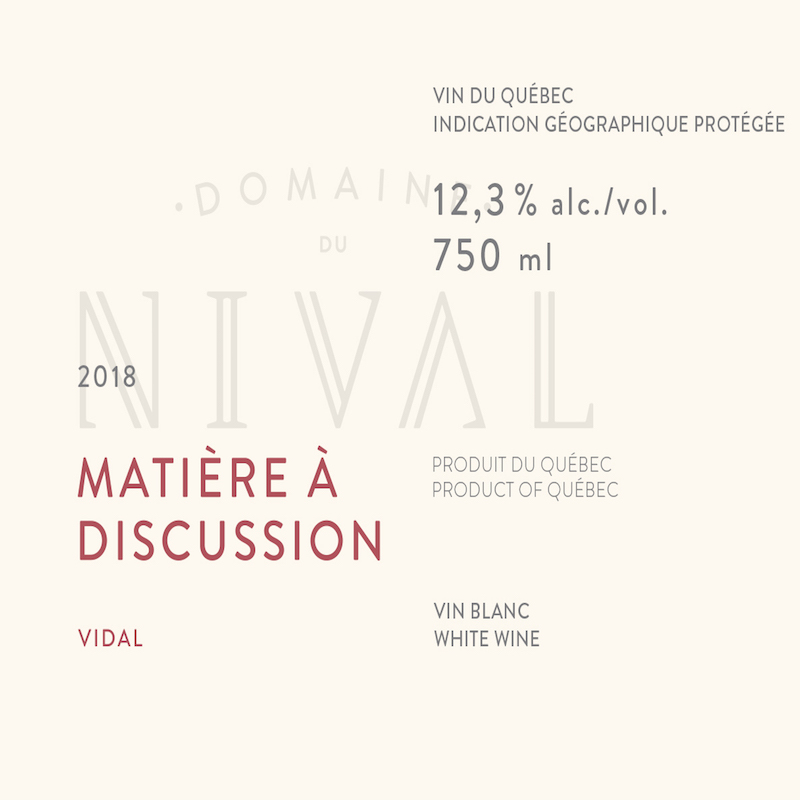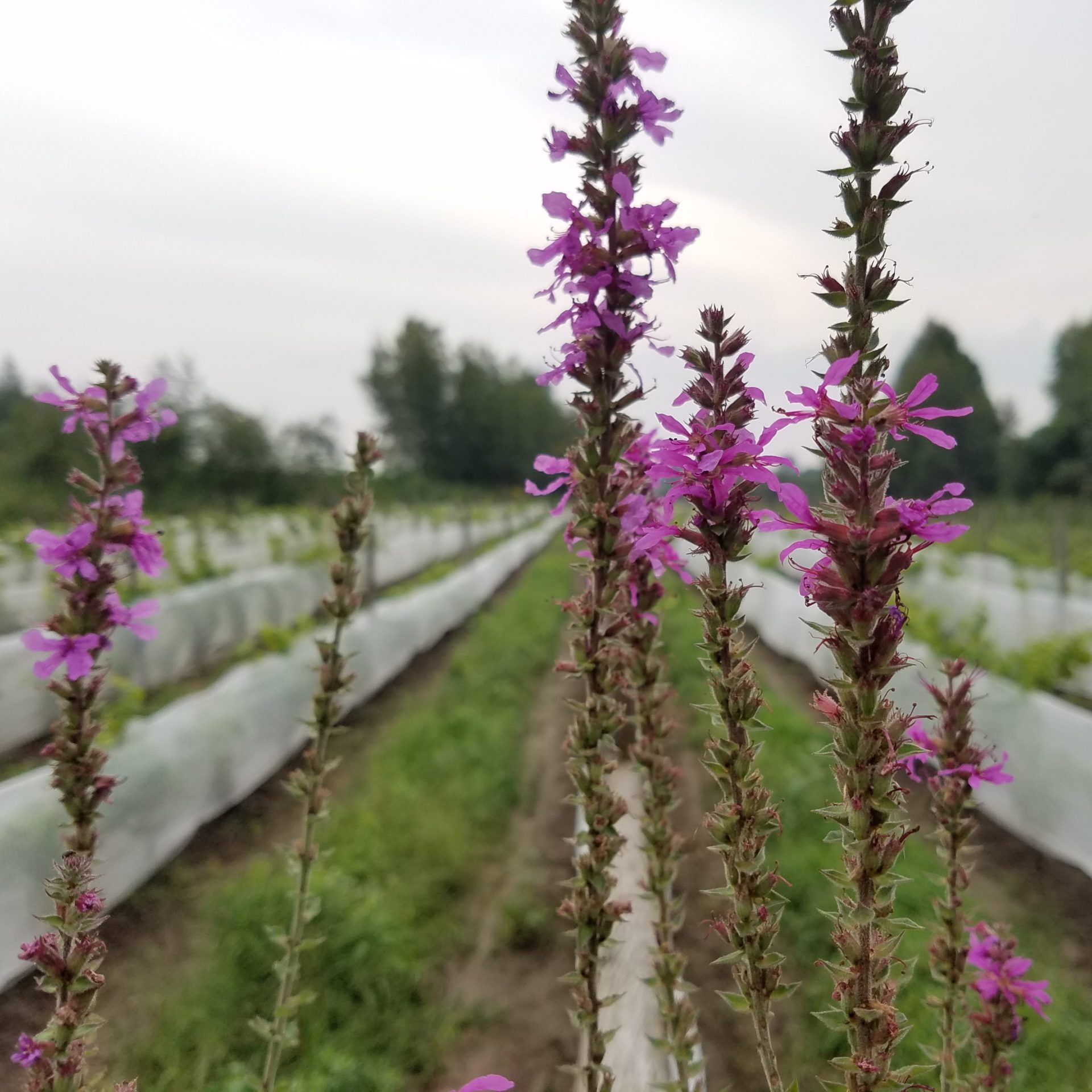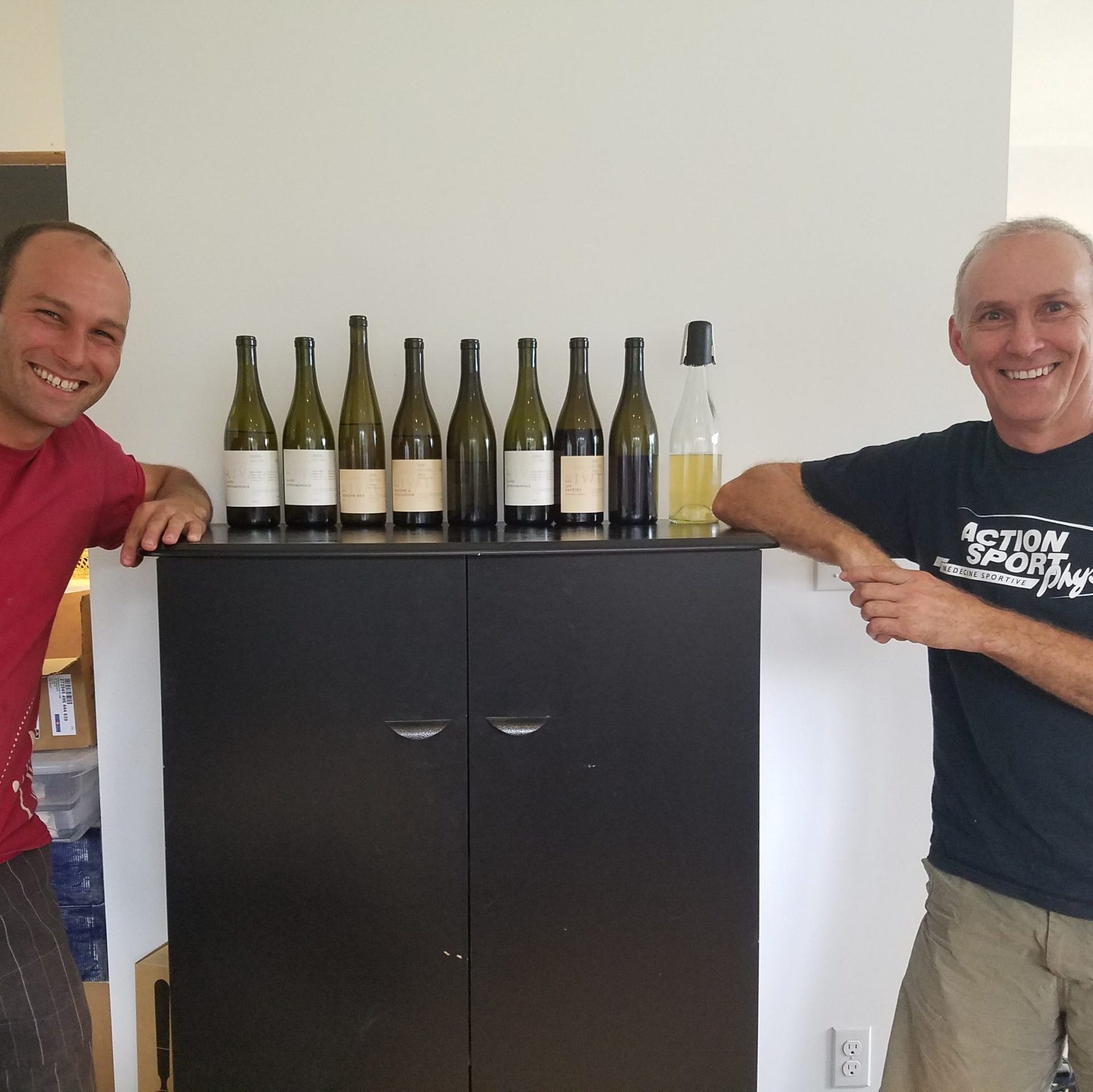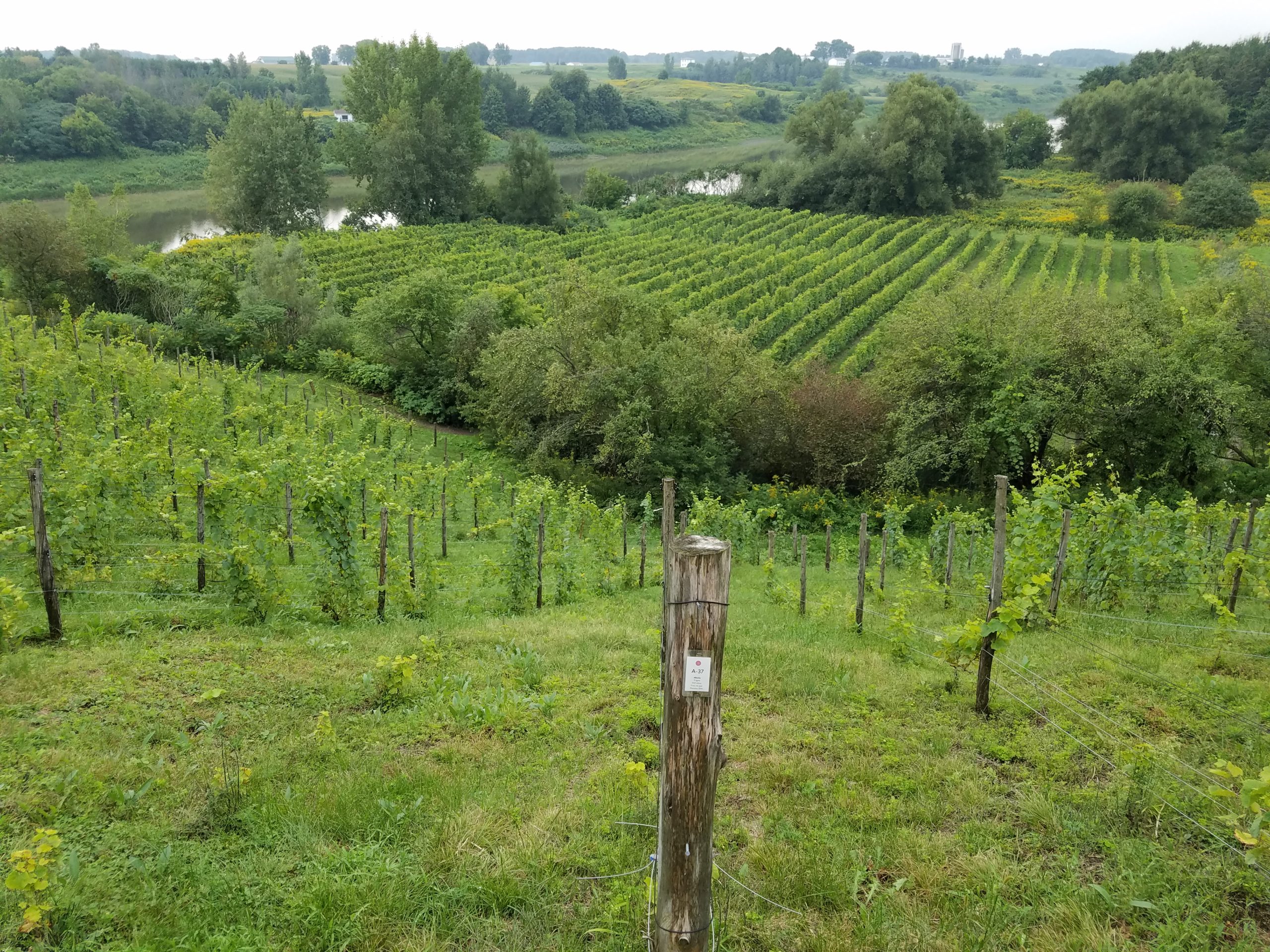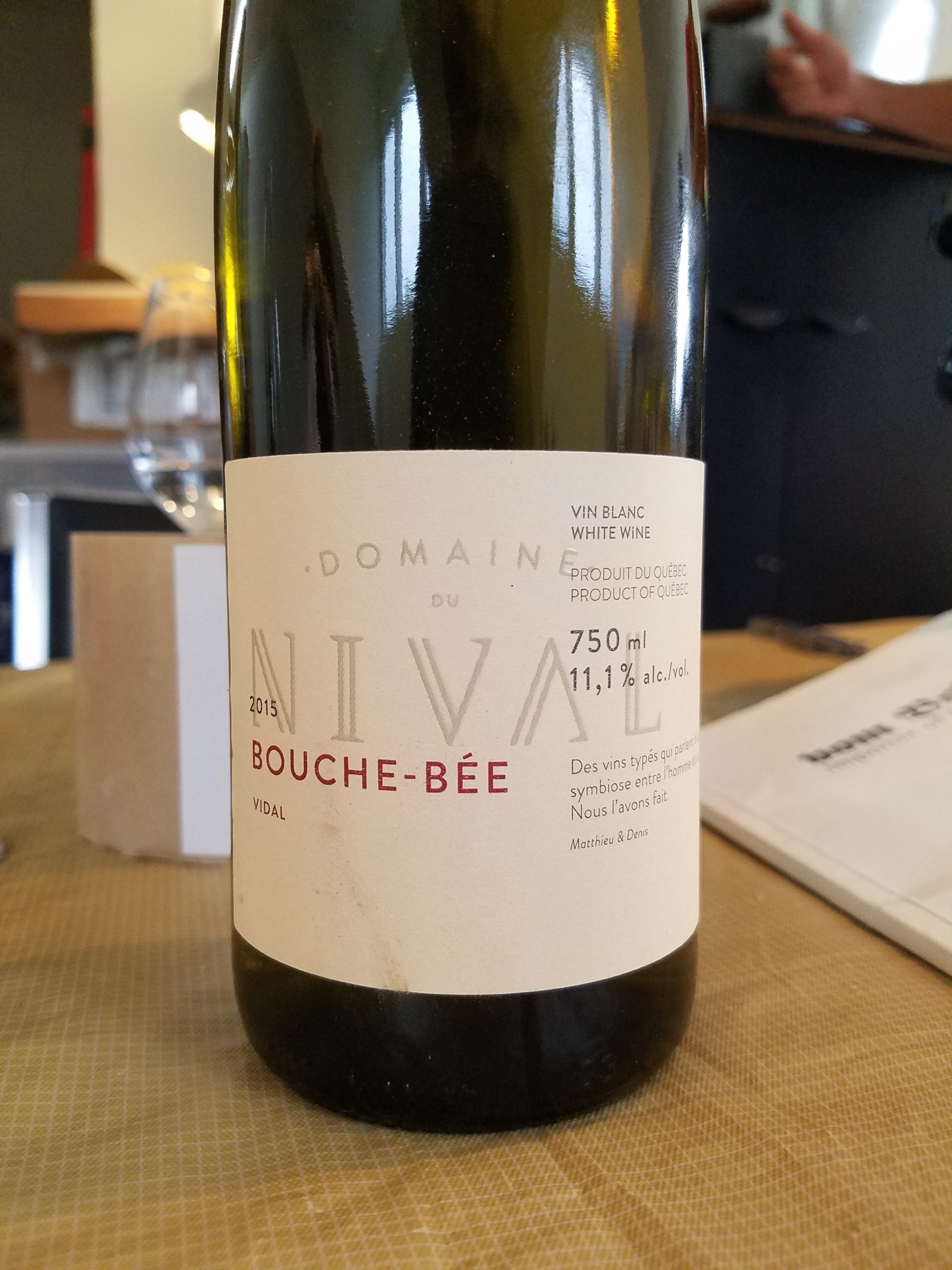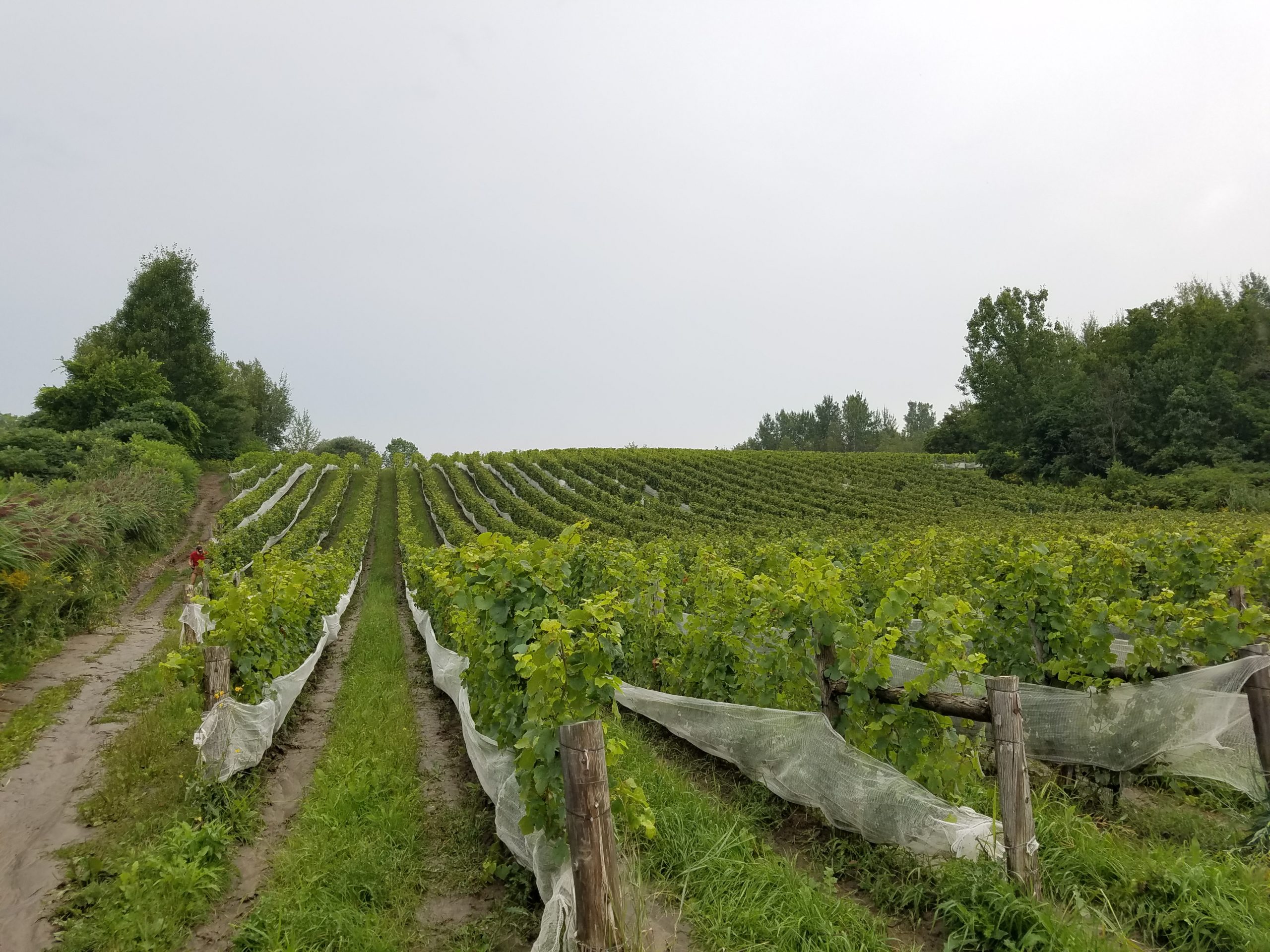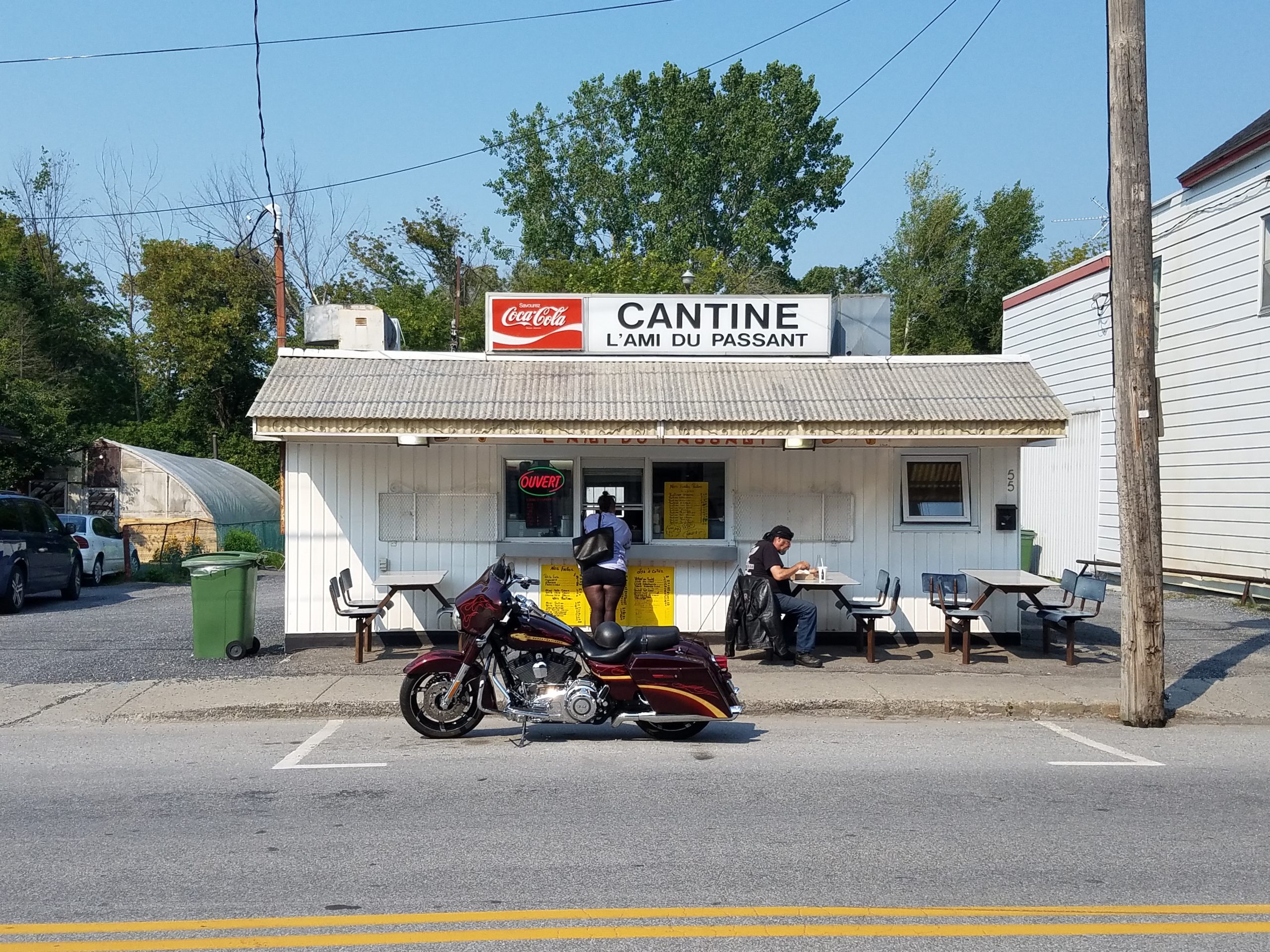Honesty, immediacy.
These may not seem like grand or even noteworthy attributes, yet I’d ask we all slow down… stare for a moment away from the computer, to the upper corner of the room, where the walls and ceiling meet.
Let your eyes relax and your vision go a bit fuzzy. Exhale, feel the air pressure in your eardrums and listen to the nearly silent humming of the world around you, in whatever room you’re in right now.
Right there, there it is… though of course the moment you name it, it’s gone.
The ability to communicate something, even something simple, with no distortion, no gray noise, no muddled flavors or excess baggage… it’s actually amazing.
This is the best way I can describe the vibrancy, the clarity of the wines of Domaine du Nival.
Domaine du Nival is one of the newest estates in Quebec, just outside of Montreal. A father-and-son dream, Denis (father) and Matthieu (son) played with the idea for years. It was the bad idea that just wouldn’t quit.
So they just went ahead and did it.
They found a few hectares in the sleepy town of St-Louis, about an hour and 45 minutes northeast of Montreal. This is an area surrounded by agriculture of a more commercial kind. Yet the land they found is beautiful; it has an intimate, secret feeling, being surrounded on two sides by forests. A road marks another boundary, and the land undulates from there, slowly, delicately down, transitioning from sand to loam to clay, ending at the Yamaska river. The river is the final line to demarcate their land.
At this point, especially in North America (whether east coast or west), it’s a little bit of a bragging right to be the person not only making the wine, but working the vineyard. This is good as far as I’m concerned; the quicker we can elevate the role of the farmer, the better off our entire agricultural system will be. At Nival, not only are they farming organic and biodynamically, they planted the damn vineyard. Not a lot of winemakers can say that.
This is starting something, literally, from the ground up.
Denis, Matthieu and Matthieu’s wife Fannie planted around two hectares beginning in 2013, to the hybrid Vidal, as well as vinifera including Pinot Noir, Albariño (y’up) and the Swiss curiosity Gamaret. At this point, the Vidal and the Pinot Noir is the focus. The first vintage was 2015; they quickly became one of the most talked about estates in Montreal. They are now almost at three hectares in size.
As with with the wines of Les Pervenches (the other estate in Quebec we import), in the cellar Nival hits nearly every box on the “Natty Wine 101” check list: natural fermentations, bottling unfined and unfiltered, minimal use of sulfur. Yet, for all this, the wines taste, well, classic. As with Pervenches, these wines are not extroverted and boisterous, yet they do communicate very directly; there is a saturating quality to the wines. They are honest and immediate. You feel them. Your mouth vibrates.
As with Pervenches, the wines of Nival seem to me able to have a dialogue with any of the great wines of the ‘old world,’ relating most obviously to the cooler climates of Europe. Yet, as easily as these wines could find the famous terroirs of Europe in their family tree, there is also something very palpably different. Domaine du Nival dotes on both their vinifera and hybrids. Nival’s Vidal bottling (a hybrid) “Bouche-Bée” is Vidal as a shimmering, crystalline wine; the Vidal that would please lovers of Muscadet. The Vidal bottling “Matière à Discussion” is Vidal as deep and introverted, layers of ripe melon fruit and stone; the Côte d’Or on the frozen tundra.
That said, the uniqueness of these wines is more than just the use of hybrids. Perhaps it’s due to a farming and cellar culture that sprung ex nihilo, taking full and wise advantage of the geographical isolation as a means of creating and maintaining freedom.
From where or why or how this uniqueness comes about, I don’t know, but I do feel it, profoundly.
As I wrote in my Les Pervenches write up: I’m not sure of a lot of things (doubting and worrying are among my chief talents), yet I am very confident that in another decade, the wines of Nival will also be widely known and widely respected, and the story of Quebec wines will be a narrative that many people are interested in. Feel free to get on board now.
